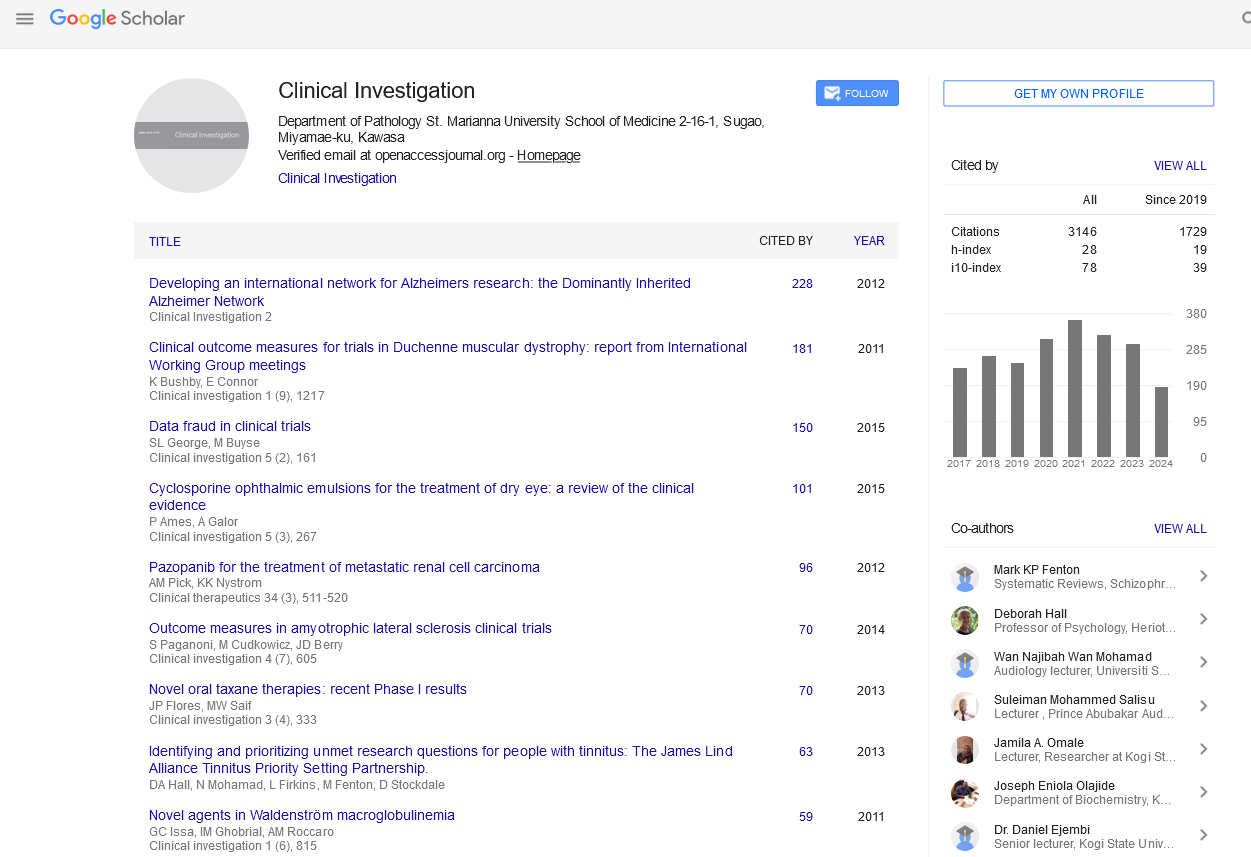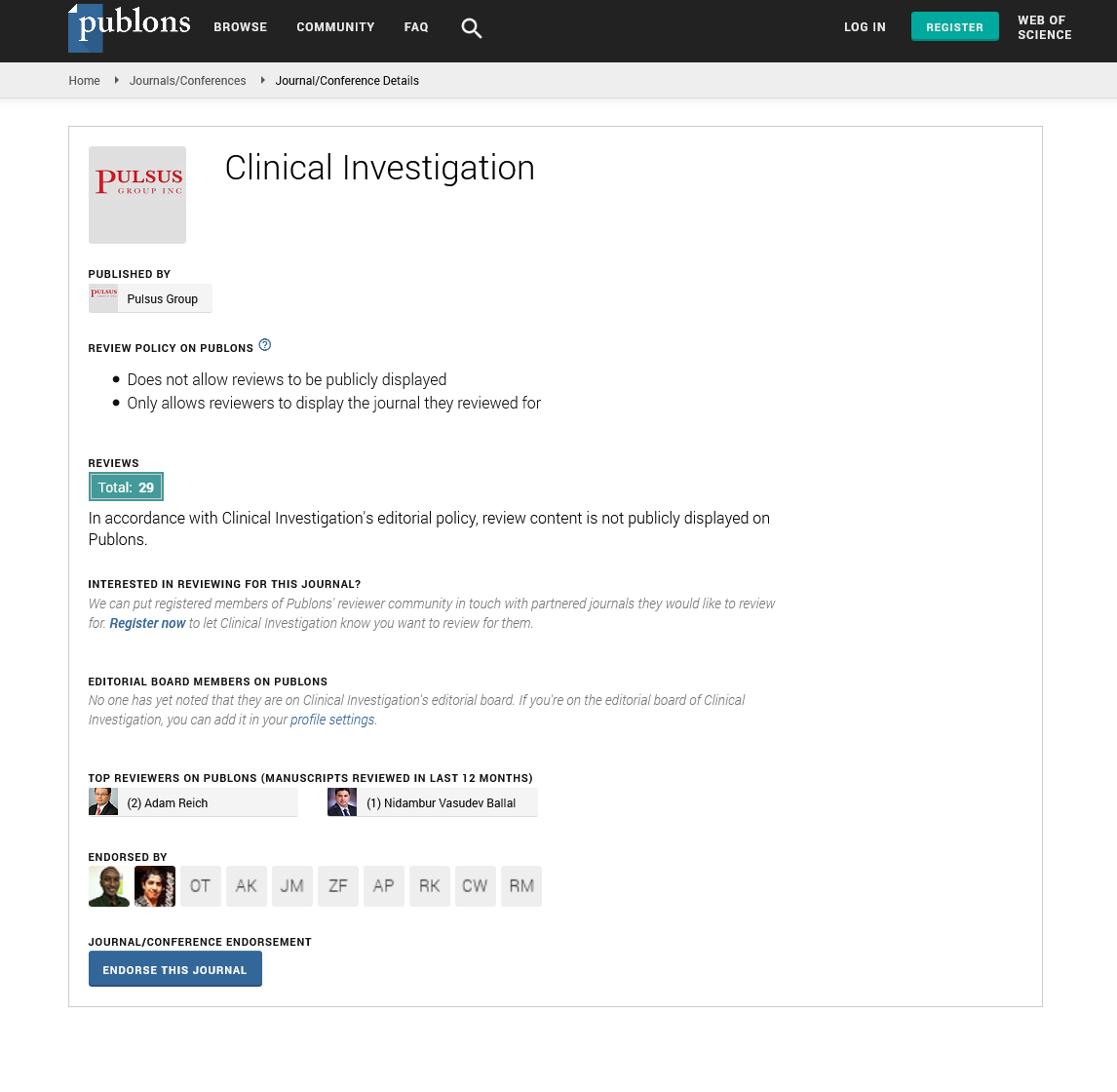Perspective - Clinical Investigation (2022) Volume 12, Issue 11
Diabetes and Dementia: What You Need to Know
- Corresponding Author:
- Julieta Rosales
Editorial office, Journal of Clinical Diagnosis and Treatment, Belgium
E-mail: Julietaros54@hotmail.com
Abstract
Introduction
Type 2 diabetes is more widespread in our culture than ever before as a result of rising weight, inactivity, and ageing trends. Since 2000, there has been a 5% increase in premature mortality in highincome nations due to a decline in diabetes-related fatalities from 2000 to 2010, followed by an increase from 2010 to 2016. The fact that type 2 diabetes is now routinely diagnosed in kids is especially concerning, as a result of their weight and inactivity. The link between type 2 diabetes and an elevated risk of heart disease and stroke has been wellestablished for many years. The chance of developing dementia is also increased by diabetes, according to more recent studies. The question of whether the age at which diabetes first manifests itself affects your risk of dementia development has not yet been researched.
Dementia and diabetes
An excessive amount of glucose (a form of sugar) is present in the blood when someone has diabetes. Insulin is a hormone that the pancreas produces that controls blood glucose levels. Diabetes can result in insufficient insulin production from the pancreas or improper insulin function (insulin resistance). Blood glucose levels rise due to this, which can cause health issues like kidney and eye damage. Every day, over 280 Australians are given a diabetes diagnosis, and 20% of persons over the age of 65 have the disease. The majority of cases of diabetes are type 2. Type 1 and gestational diabetes are further kinds of diabetes (diabetes diagnosed in pregnancy). Healthy food, regular exercise, and medication can control diabetes (which may include insulin). A group of signs and symptoms brought on by illnesses of the brain are referred to as dementia. Mental and behavioral processes as well as daily functions are all impacted by dementia. There are numerous varieties of dementia; it is not one particular disease. The most prevalent varieties of dementia are frontotemporal dementia, Alzheimer's disease, vascular dementia, Lewy body dementia, and Lewy body disease. Alzheimer's disease is not a typical component of ageing, but the risk of having it rises with age. A little more than 10% of Australians 65 and older have dementia. 3 out of 10 people who are above 85 years old make up this group.
What ties diabetes and dementia together?
Alzheimer's disease, vascular dementia, and other types of dementia have all been linked to type 2 diabetes, according to studies. This is true because cardiovascular issues, which also raise the chance of type 2 diabetes and dementia, are risk factors for both conditions. These include: being overweight, having a heart condition or a family history of heart disease, having damaged blood vessels, having circulatory issues, having high cholesterol, and having high blood pressure.


